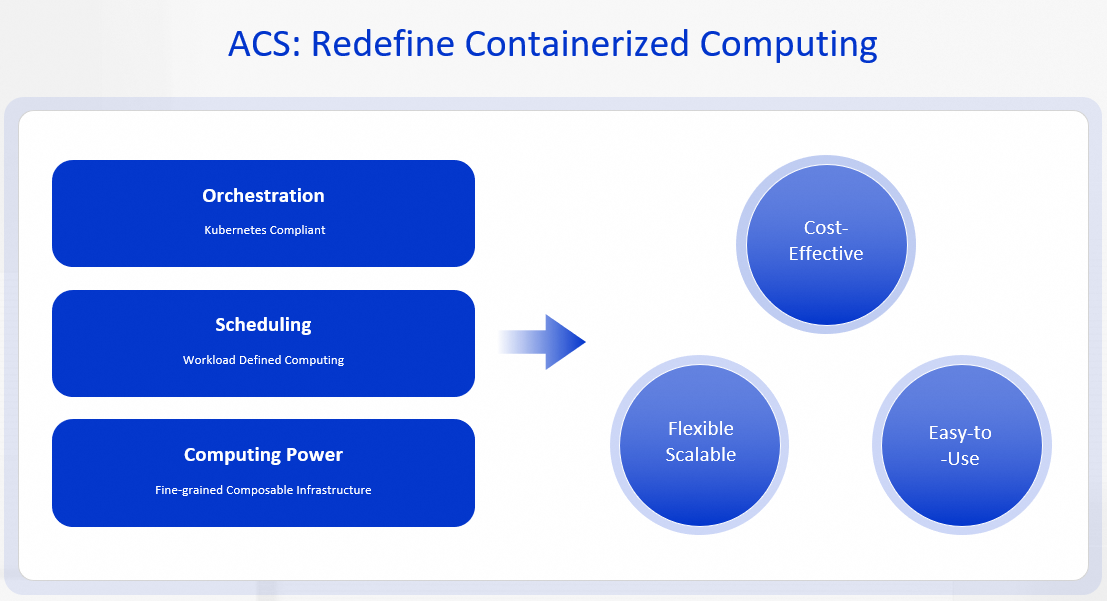ดีดีพร็อพเพอร์ตี้เผยสุดยอดทำเลทองประจำปี 2567
ไม่พลิกโผคนยังค้นหาบ้านใน “กรุงเทพฯ” มากที่สุด “BTS อ่อนนุช” ยังครองแชมป์ทำเลแนวรถไฟฟ้าสุดฮอต
แม้ภาคอสังหาริมทรัพย์ในปี 2567 ยังไม่ฟื้นตัวตามที่หลายฝ่ายคาดกันไว้ หลังจากทั้งฝั่งผู้บริโภคและผู้พัฒนาอสังหาริมทรัพย์ต้องโต้คลื่นความท้าทายตลอดทั้งปี โดยมีปัจจัยสำคัญมาจากกำลังของซื้อผู้บริโภคที่ชะลอตัวและส่งผลต่อยอดขายและยอดโอนกรรมสิทธิ์ตามไปด้วย แผนการซื้อบ้านจึงยังไม่ใช่เรื่องเร่งด่วนของหลายคน อย่างไรก็ดี ท่ามกลางความท้าทายเหล่านี้ยังคงมีปัจจัยบวกหลังจากภาครัฐได้ออกมาตรการกระตุ้นเศรษฐกิจผ่านภาคอสังหาริมทรัพย์ออกมาเพิ่มเติมในเดือนเมษายน 2567 และที่ประชุมคณะกรรมการนโยบายการเงิน (กนง.) ได้ปรับลดอัตราดอกเบี้ยนโยบายลง 0.25% ในเดือนตุลาคม 2567 ถือเป็นปัจจัยสนับสนุนสำคัญที่จะช่วยขับเคลื่อนให้ตลาดที่อยู่อาศัยมีโอกาสกลับมาฟื้นตัวในอนาคต
แม้ภาพรวมตลาดอสังหาริมทรัพย์จะยังไม่ฟื้นตัวดีดังเดิม แต่ในหลายทำเลยังคงมีความต้องการซื้ออย่างต่อเนื่อง ข้อมูลจากแบบสอบถามความคิดเห็นของผู้บริโภคที่มีต่อตลาดที่อยู่อาศัย DDproperty Thailand Consumer Sentiment Study รอบล่าสุดเผยว่าผู้บริโภคเกือบครึ่ง (48%) มองว่าทำเลที่ตั้งของโครงการถือเป็นปัจจัยภายนอกโครงการที่มีผลต่อการตัดสินใจเลือกซื้อ/เช่าที่อยู่อาศัยมากที่สุด รองลงมาคือต้องการโครงการที่เดินทางได้สะดวกด้วยระบบขนส่งสาธารณะ (44%) จะเห็นได้ว่าโครงการที่ตั้งอยู่ในทำเลที่มีความเจริญและมีศักยภาพที่จะเติบโตในอนาคต สามารถเดินทางได้สะดวก ย่อมส่งผลให้ดีมานด์ซื้อ/เช่าที่อยู่อาศัยเติบโตตามไปด้วย
ดีดีพร็อพเพอร์ตี้ (DDproperty) แพลตฟอร์มอสังหาริมทรัพย์อันดับ 1 ของไทย เผยข้อมูลเชิงลึกจากผู้เข้าเยี่ยมชมในเว็บไซต์ www.DDproperty.com ในรอบปี 2567 (เก็บข้อมูลระหว่างเดือนมกราคม – ธันวาคม 2567) สะท้อนเทรนด์ความต้องการซื้อและเช่าที่อยู่อาศัยของผู้บริโภคชาวไทยทั่วประเทศ พร้อมอัปเดตทำเลศักยภาพที่น่าจับตามอง
“กรุงเทพฯ” ยืนหนึ่งจังหวัดยอดนิยมของคนหาบ้าน “เชียงใหม่” รั้งอันดับ 2 รับอานิสงส์การท่องเที่ยวฟื้น
กรุงเทพมหานครยังคงครองความนิยมเป็นจังหวัดที่ได้รับความสนใจซื้อ/เช่าทั่วประเทศมากที่สุดในรอบปี 2567 ขณะที่หัวเมืองท่องเที่ยวอย่างเชียงใหม่ได้รับความนิยมเพิ่มขึ้นจนครองอันดับ 2 ตามมาด้วยอันดับ 3 นนทบุรี, อันดับ 4 ภูเก็ต, อันดับ 5 ชลบุรี, อันดับ 6 ปทุมธานี, อันดับ 7 สมุทรปราการ, อันดับ 8 ประจวบคีรีขันธ์, อันดับ 9 ระยอง และอันดับ 10 ขอนแก่น
ทั้งนี้ หัวเมืองท่องเที่ยวกลับมาติดอันดับต้น ๆ จังหวัดยอดนิยมที่มีการค้นหาที่อยู่อาศัยมากขึ้น หลังจากตลาดอสังหาฯ ในปี 2567 ได้รับอานิสงส์จากการฟื้นตัวของการท่องเที่ยวส่งผลให้จำนวนชาวต่างชาติที่เข้ามาในไทยเพิ่มมากขึ้น หัวเมืองท่องเที่ยวจึงได้รับความสนใจซื้อ/เช่าเพื่อใช้เป็นบ้านพักตากอากาศหรือรองรับการอยู่อาศัยในวัยเกษียณเพิ่มขึ้นตามไปด้วย
10 ทำเลรถไฟฟ้าน่าจับตามอง “BTS อ่อนนุช” มาแรงเกินต้าน ครองแชมป์ทำเลแนวรถไฟฟ้ายอดนิยม
การเดินทางด้วยรถไฟฟ้ายังคงเป็นการสัญจรที่สะดวกและรวดเร็วตอบโจทย์การใช้ชีวิตในเมืองหลวง ปัจจุบันมีการขยายเส้นทางรถไฟฟ้าให้ครอบคลุมการเดินทางได้มากขึ้น ส่งผลให้ทำเลแนวรถไฟฟ้าทั้งเส้นทางที่เปิดให้บริการแล้วและอยู่ระหว่างการก่อสร้างมีความต้องการซื้อ/เช่าที่อยู่อาศัยเพิ่มขึ้นตามไปด้วย
สำหรับทำเลแนวรถไฟฟ้าทั้ง BTS และ MRT ที่ได้รับความสนใจซื้อ/เช่ามากที่สุดในรอบปี 2567 อันดับ 1 ได้แก่ BTS อ่อนนุช ทำเลศักยภาพแนวรถไฟฟ้าสายสีเขียวที่ได้รับความสนใจจากคนหาบ้านอย่างต่อเนื่องด้วยปัจจัยแวดล้อมที่เอื้อต่อการอยู่อาศัยมากมายทั้งเป็นย่านธุรกิจ แหล่งช้อปปิ้ง การเดินทางที่หลากหลาย และยังเป็นสถานีแรกของรถไฟฟ้าส่วนต่อขยายไปยังสถานีเคหะฯ ในจังหวัดสมุทรปราการ ทำให้ไม่ต้องเสียค่าโดยสารรถไฟฟ้าส่วนต่อขยายเพิ่ม อีกทั้งโครงการที่อยู่อาศัยในทำเลนี้ยังมีราคาไม่แพง จึงส่งผลให้ทำเลแนวรถไฟฟ้า BTS อ่อนนุช เป็นทำเลศักยภาพที่น่าสนใจทั้งเพื่ออยู่อาศัยเองหรือลงทุน
ตามมาด้วย อันดับ 2 BTS พร้อมพงษ์, อันดับ 3 BTS เอกมัย, อันดับ 4 BTS ทองหล่อ, อันดับ 5 BTS อโศก, อันดับ 6 MRT พระราม 9, อันดับ 7 BTS อารีย์, อันดับ 8 MRT ลาดพร้าว, อันดับ 9 MRT ห้วยขวาง และอันดับ 10 BTS สะพานควาย
จากข้อมูล 10 สถานีรถไฟฟ้ายอดนิยมในกลุ่มผู้ค้นหาที่อยู่อาศัยในรอบปี 2567 พบว่า 7 ใน 10 เป็นสถานีที่อยู่ในโครงการรถไฟฟ้า BTS สายสีเขียว ซึ่งเปิดให้บริการเป็นสายแรกของประเทศไทยและเชื่อมต่อการเดินทางสู่ใจกลางเมืองซึ่งเป็นแหล่งงานขนาดใหญ่
นอกจากนี้ ข้อมูลของกรมการขนส่งทางราง กระทรวงคมนาคม พบว่า รถไฟฟ้าสายสีเขียวมีปริมาณผู้ใช้บริการรถไฟฟ้าสูงที่สุดในปี 2567 สะท้อนให้เห็นถึงดีมานด์ที่อยู่อาศัยและโอกาสการเติบโตในเชิงธุรกิจที่น่าจับตามอง
10 ทำเลทองในเมืองหลวง คนกรุงปักหมุดให้ “เขตวัฒนา” นำหน้าครองใจทั้งผู้ซื้อ-ผู้เช่า
กรุงเทพมหานครเป็นเป้าหมายหลักของผู้พัฒนาอสังหาฯ ที่ต่างเปิดตัวโครงการในหลากหลายทำเลให้ครอบคลุมความต้องการซื้อ/เช่าทุกระดับราคา ข้อมูลการเข้าชมประกาศอสังหาฯ พบว่า ”เขตวัฒนา” ยังได้รับความนิยมในกลุ่มคนหาบ้านต่อเนื่องอีกปี ครองอันดับ 1 สุดยอดทำเลในกรุงเทพฯ ที่ได้รับความสนใจซื้อและเช่ามากที่สุดในรอบปี 2567 โดยมีปัจจัยสนับสนุนทั้งการเดินทาง สาธารณูปโภคและสิ่งอำนวยความสะดวกมากมาย ทำให้เขตวัฒนาขึ้นแท่นทำเลทองที่ผู้ซื้อ/ผู้เช่านิยมค้นหาบ้าน/คอนโดฯ มากที่สุดของปีมะโรง
โดย 10 ทำเลในกรุงเทพฯ ที่มีความต้องการซื้อมากที่สุดในรอบปี 2567 ได้แก่
- อันดับ 1 เขตวัฒนา
- อันดับ 2 เขตจตุจักร
- อันดับ 3 เขตห้วยขวาง
- อันดับ 4 เขตคลองเตย
- อันดับ 5 เขตประเวศ
- อันดับ 6 เขตบางกะปิ
- อันดับ 7 เขตสวนหลวง
- อันดับ 8 เขตบางนา
- อันดับ 9 เขตพระโขนง
- อันดับ 10 เขตบางเขน
ขณะที่ 10 ทำเลในกรุงเทพฯ ที่มีความต้องการเช่ามากที่สุดในรอบปี 2567 ได้แก่
- อันดับ 1 เขตวัฒนา
- อันดับ 2 เขตคลองเตย
- อันดับ 3 เขตห้วยขวาง
- อันดับ 4 เขตราชเทวี
- อันดับ 5 เขตพระโขนง
- อันดับ 6 เขตปทุมวัน
- อันดับ 7 เขตจตุจักร
- อันดับ 8 เขตบางนา
- อันดับ 9 เขตบางรัก
- อันดับ 10 เขตสาทร
ทำเลใกล้สถานศึกษาย่าน “จุฬาลงกรณ์มหาวิทยาลัย” ขึ้นแท่นทำเลมาแรงน่าจับตามอง
ทำเลใกล้สถานศึกษาถือเป็นอีกตลาดที่ผู้พัฒนาอสังหาฯ หันมาให้ความสำคัญมากขึ้น มีกลุ่มเป้าหมายที่ชัดเจนอย่างนักเรียน-นักศึกษา ผู้ปกครอง และบุคลากรในสถานศึกษาที่ต้องการความสะดวกในการเดินทาง และสามารถลงทุนระยะยาวโดยประกาศขายหรือปล่อยเช่าได้เรื่อย ๆ ส่งผลให้เทรนด์แคมปัสคอนโดฯ (Campus Condo) หรือคอนโดฯ ในทำเลใกล้สถานศึกษามีการเติบโตต่อเนื่อง เนื่องจากคอนโดฯ เป็นรูปแบบอสังหาฯ ที่ตอบโจทย์การอยู่อาศัยในเมืองหลวง และมีระบบรักษาความปลอดภัยที่ได้มาตรฐาน
โดยทำเลในละแวก “จุฬาลงกรณ์มหาวิทยาลัย” มีการค้นหาที่อยู่อาศัยเพื่อซื้อ/เช่ามากที่สุด เนื่องจากเป็นย่านธุรกิจสำคัญใจกลางเมือง ส่งผลให้กลายเป็นทำเลที่มีราคาที่ดินสูงสุดในกรุงเทพมหานคร เห็นได้จากผลการสำรวจราคาที่ดินในเขตกรุงเทพมหานครและปริมณฑลของศูนย์ข้อมูลวิจัยและประเมินค่าอสังหาริมทรัพย์ไทย บจก.เอเจนซี่ ฟอร์ เรียลเอสเตท แอฟแฟร์ส เผยว่า ที่ดินบริเวณสยามสแควร์ ชิดลม เพลินจิต ครองอันดับหนึ่งราคาที่ดินสูงที่สุดของประเทศไทย โดยประมาณการไว้ที่ 3.75 ล้านบาทต่อตารางวา หรือไร่ละ 1,500 ล้านบาท ณ สิ้นปี 2567 และทำเลนี้ยังเดินทางได้สะดวกด้วยรถไฟฟ้า ประกอบกับเป็นสถานศึกษาชั้นนำจึงทำให้มีความต้องการซื้อ/เช่าทั้งจากนักศึกษา บุคลากรสถานศึกษา รวมทั้งวัยทำงานในย่านนั้นเพิ่มขึ้นตามไปด้วย
สำหรับ 5 ทำเลใกล้สถานศึกษาที่ได้รับความสนใจซื้อมากที่สุดในรอบปี 2567 ได้แก่
- อันดับ 1 จุฬาลงกรณ์มหาวิทยาลัย
- อันดับ 2 มหาวิทยาลัยศรีนครินทรวิโรฒ
- อันดับ 3 มหาวิทยาลัยหอการค้าไทย
- อันดับ 4 มหาวิทยาลัยศรีปทุม
- อันดับ 5 มหาวิทยาลัยเทคโนโลยีพระจอมเกล้าธนบุรี
ขณะที่ 5 ทำเลใกล้สถานศึกษาที่ได้รับความสนใจเช่ามากที่สุดในรอบปี 2567 ได้แก่
- อันดับ 1 จุฬาลงกรณ์มหาวิทยาลัย
- อันดับ 2 มหาวิทยาลัยศรีนครินทรวิโรฒ
- อันดับ 3 มหาวิทยาลัยศรีปทุม
- อันดับ 4 มหาวิทยาลัยธรรมศาสตร์ (ท่าพระจันทร์)
- อันดับ 5 Bangkok Prep International School
ผู้ซื้อมองหาบ้าน/คอนโดฯ 2 ห้องนอน ราคาไม่เกิน 2 ล้านตอบโจทย์ Real Demand
จากข้อมูลฝั่งตลาดซื้ออสังหาฯ พบว่า ผู้ที่วางแผนซื้อที่อาศัยทั่วประเทศในรอบปี 2567 เลือกใช้ฟิลเตอร์เพื่อค้นหาบ้าน/คอนโดฯ ที่มี 2 ห้องนอนมากที่สุดเป็นอันดับ 1 ซึ่งเป็นขนาดที่เหมาะกับครอบครัวขนาดเล็กที่ต้องการแยกสัดส่วนที่พักอาศัยให้ชัดเจน รองลงมาอันดับ 2 ได้แก่ ที่อยู่อาศัย 3 ห้องนอน และอันดับ 3 สนใจซื้อที่อยู่อาศัย 1 ห้องนอน
ทั้งนี้ ผู้ซื้อเกือบ 2 ใน 3 (64%) มองหาโครงการที่อยู่อาศัยที่ตกแต่งให้ครบแบบพร้อมเข้าอยู่ (Fully Furnished) มากที่สุด เนื่องจากช่วยประหยัดเวลาและค่าใช้จ่ายในการตกแต่ง ทำให้วางแผนการเงินได้ง่ายขึ้น และสามารถย้ายเข้าอยู่ได้ทันที ขณะที่ 28% เลือกโครงการที่ไม่มีการตกแต่งใด ๆ เพื่อที่จะได้แต่งบ้านในสไตล์ที่ชอบเองทั้งหมด ส่วนอีก 22% ต้องการโครงการที่ตกแต่งให้บางส่วน (Fully Fitted) เท่านั้น
เมื่อพิจารณาด้านราคาที่ผู้ซื้อค้นหาบนเว็บไซต์ DDproperty มากที่สุด พบว่าระดับราคาไม่เกิน 2 ล้านบาทมีการค้นหามากที่สุด สะท้อนให้เห็นความต้องการของผู้ซื้อเพื่ออยู่อาศัยจริง (Real Demand) ที่ต้องการค้นหาที่อยู่อาศัยในราคาที่เอื้อมถึง และไม่จำเป็นต้องอยู่ใจกลางเมืองอีกต่อไป เนื่องจากมีการเปิดให้บริการของรถไฟฟ้าส่วนต่อขยายไปยังพื้นที่ชานเมืองมากขึ้น ผู้บริโภคจึงสามารถเลือกซื้อบ้าน/คอนโดฯ ในทำเลชานเมืองซึ่งมีราคาย่อมเยากว่าได้ ซึ่งช่วยลดภาระทางการเงินได้มากพอสมควร โดยระดับราคาที่อยู่อาศัยที่ชาวไทยสนใจซื้อมากที่สุดในรอบปี 2567 ได้แก่
- อันดับ 1 ระดับราคา 1,000,000 – 2,000,000 บาท
- อันดับ 2 ระดับราคา 500,000 – 1,500,000 บาท
- อันดับ 3 ระดับราคา 500,000 – 2,000,000 บาท
4 ใน 5 ของผู้เช่ามองหาโครงการตกแต่งพร้อมอยู่ พร้อมจ่ายค่าเช่ารายเดือนไม่เกิน 15,000 บาท
ความท้าทายทางการเงินถือเป็นปัจจัยสำคัญที่ผลักดันให้เทรนด์การเช่าที่อยู่อาศัยเติบโตอย่างต่อเนื่อง ผู้บริโภคที่ต้องการลดภาระหนี้ที่ไม่จำเป็นในยุคที่เศรษฐกิจไม่ฟื้นตัวจึงเลือกเช่าบ้าน/คอนโดฯ แทนการซื้อ ข้อมูลจากผู้เยี่ยมชมเว็บไซต์ฯ พบว่า ผู้ที่วางแผนเช่าที่อาศัยทั่วประเทศในรอบปี 2567 ค้นหาบ้าน/คอนโดฯ ที่มี 2 ห้องนอนมากที่สุดเป็นอันดับ 1 คล้ายกับความต้องการของผู้ซื้อ รองลงมา อันดับ 2 สนใจเช่าที่อยู่อาศัย 1 ห้องนอน และอันดับ 3 สนใจเช่าที่อยู่อาศัย 3 ห้องนอน ซึ่งความต้องการเหล่านี้แตกต่างกันไปตามจำนวนสมาชิกของแต่ละครอบครัวเป็นหลัก
โดยพบว่า 1 ใน 4 (80%) ของผู้เช่าที่อยู่อาศัยต้องการโครงการที่ตกแต่งให้ครบแบบพร้อมเข้าอยู่ (Fully Furnished) มากที่สุด เพื่อลดค่าใช้จ่ายในการซื้อเฟอร์นิเจอร์ อีกทั้งยังสะดวกทั้งในการย้ายเข้า-ออกหากต้องโยกย้ายทำเลในอนาคต ส่วน 18% สนใจโครงการที่ตกแต่งให้บางส่วน (Fully Fitted) มีผู้เช่าเพียง 9% เท่านั้นที่เลือกโครงการที่ไม่มีการตกแต่งใด ๆ เลย
ขณะที่ระดับค่าเช่าส่วนใหญ่ที่มีผู้เช่าค้นหามากที่สุดอยู่ในช่วงไม่เกิน 15,000 บาท/เดือน ซึ่งถือเป็นค่าเช่าที่อยู่ในระดับปานกลาง เหมาะสมและตอบโจทย์ผู้ที่มองหาบ้าน/คอนโดฯ ให้เช่าในทำเลแนวรถไฟฟ้า มีสิ่งอำนวยความสะดวกและพื้นที่ใช้สอยครบครัน ซึ่งถือว่าคุ้มค่าเมื่อเทียบกับการซื้อที่ต้องมีภาระหนี้ในระยะยาว และยังต้องกังวลกับการปรับขึ้นของดอกเบี้ยที่ส่งผลต่อราคาผ่อนบ้าน/คอนโดฯ อีกด้วย โดยระดับราคาที่อยู่อาศัยที่ชาวไทยสนใจเช่ามากที่สุดในรอบปี 2567 ได้แก่
- อันดับ 1 ระดับค่าเช่า 8,000 – 15,000 บาท/เดือน
- อันดับ 2 ระดับค่าเช่า 10,000 – 15,000 บาท/เดือน
- อันดับ 3 ระดับค่าเช่า 6,000 – 8,000 บาท/เดือน





